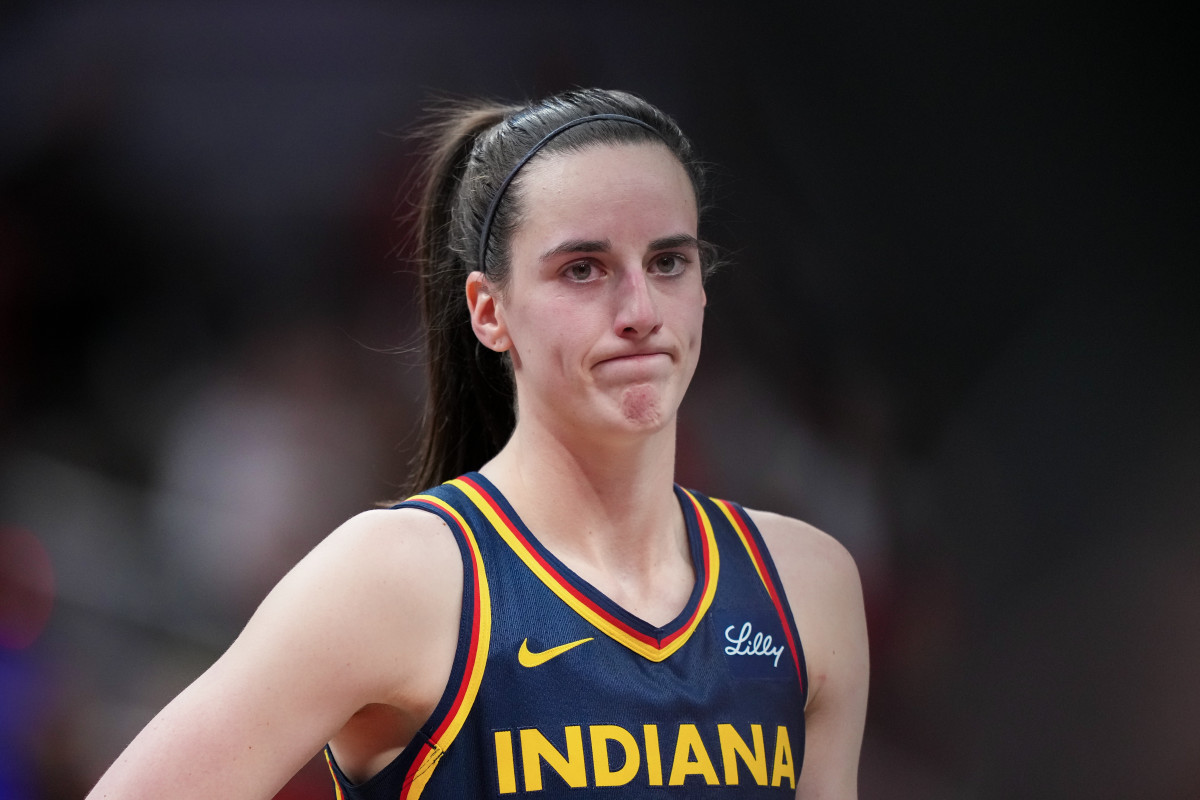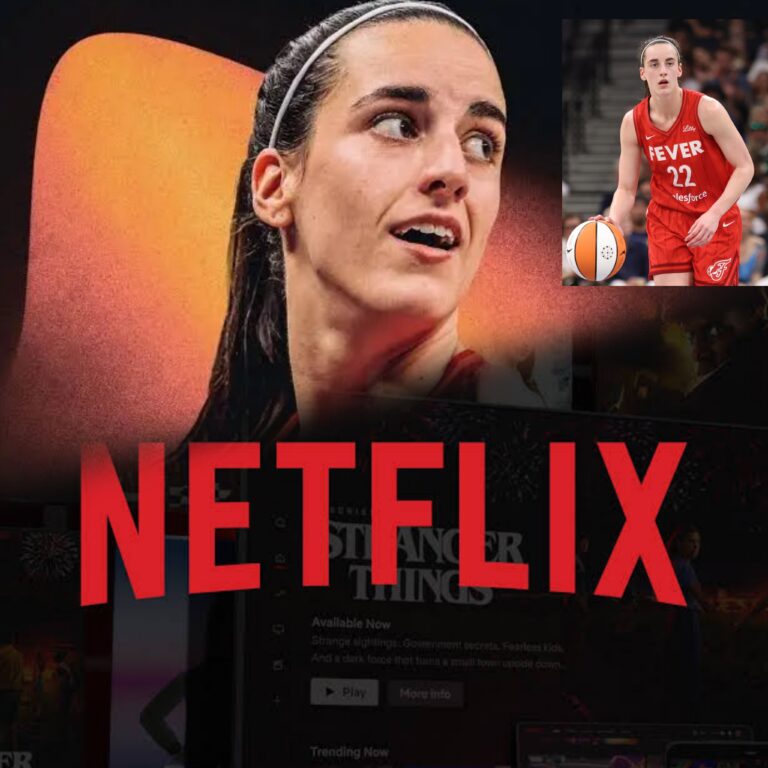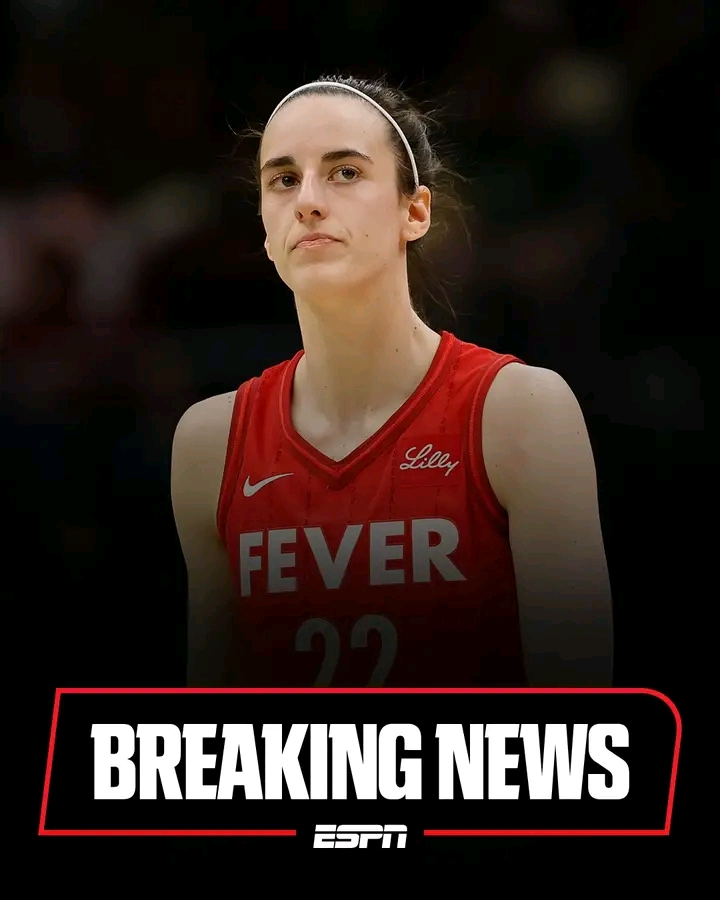
The basketball world was sent into a state of shock today as Caitlin Clark, the electrifying rookie sensation who took the WNBA by storm, announced her sudden retirement from professional basketball.

The Indiana Fever franchise simultaneously dropped a bombshell of their own, revealing plans that will fundamentally alter the future of the organization.
Caitlin Clark shocks Pat McAfee with wild beer chug after Indiana Fever clinch Commissioner’s Cup | NBA News – Times of India
This dual announcement has left fans, analysts, and fellow players scrambling for answers about what prompted this stunning decision from the 22-year-old phenom who was widely expected to become the face of the league for years to come.
Sources close to the situation indicate that Clark’s retirement stems from a combination of factors that have been building throughout her rookie season.
The immense pressure of being the most scrutinized player in women’s basketball history, combined with what insiders describe as a “toxic” media environment and growing tensions within the Fever organization, ultimately led the young star to walk away from the game she dominated at every level.
“Caitlin felt like she couldn’t win no matter what she did,” revealed a family friend. “If the Fever lost, she was blamed. If they won without her, people said they were better off. The joy just wasn’t there anymore.”
The Indiana Fever’s accompanying announcement added another layer to this developing story. Team officials revealed they have agreed in principle to trade Clark’s draft rights to an undisclosed team in exchange for what is being described as “the most significant package of players and draft picks in WNBA history.”

This unprecedented move suggests the Fever front office had advanced knowledge of Clark’s intentions and worked to salvage value from what would otherwise be a catastrophic loss for the franchise. League sources indicate the Las Vegas Aces and New York Liberty are the most likely destinations should Clark ever reconsider her retirement.
Reaction from the basketball community has been overwhelmingly emotional. Fellow rookies Angel Reese and Cameron Brink both posted tearful tributes on social media, with Reese writing, “The game won’t be the same without you.”
Even Clark’s fiercest competitors expressed shock and disappointment at the news. Veteran stars Diana Taurasi and Sue Bird released a joint statement praising Clark’s impact on the sport, while current Fever teammates appeared blindsided by the announcement during postgame interviews. Aliyah Boston, who had developed strong on-court chemistry with Clark, fought back tears when asked about the situation.
The business implications of Clark’s retirement are staggering. The WNBA had seen unprecedented growth in attendance, merchandise sales, and television ratings since Clark entered the league. The Fever in particular had become must-see entertainment, with road games consistently selling out and jersey sales breaking records.
Industry analysts estimate the league could lose hundreds of millions in projected revenue without its brightest young star. ESPN, which had heavily invested in Fever coverage, is reportedly scrambling to adjust their programming schedule.
Behind the scenes, there are whispers that Clark’s decision may be connected to a controversial new business venture. Representatives for the former Iowa superstar have filed trademarks for “Clark Media Group” and “22 Productions” in recent weeks, suggesting plans to capitalize on her fame outside of basketball.
Some speculate she may follow in the footsteps of athletes like Derek Jeter and Kevin Durant by building a media empire. Others believe she could be positioning herself for a groundbreaking Name, Image, and Likeness (NIL) deal that would dwarf her WNBA salary.
The timing of this announcement has raised eyebrows across the sports world. Coming just days after the Fever’s impressive win over the Aces without Clark in the lineup, many are questioning whether the media narrative surrounding that game played a role in her decision.

ESPN’s controversial coverage suggesting Indiana might be better without their star rookie appears to have been the final straw for Clark, who had grown increasingly frustrated with what she perceived as unfair treatment from the sports media.
Indiana Fever ownership has scheduled an emergency press conference for tomorrow morning, where they are expected to provide more details about both Clark’s retirement and the blockbuster trade in the works.
League commissioner Cathy Engelbert released a brief statement expressing respect for Clark’s decision while emphasizing the WNBA’s continued growth trajectory.
However, behind closed doors, there is said to be panic among team executives about how to replace the star power and mainstream attention Clark brought to the league.
For now, the basketball world is left to ponder what might have been. Caitlin Clark’s unprecedented college career and electrifying start in the WNBA suggested a future filled with championships, MVP awards, and a potential redefinition of women’s basketball’s place in American sports culture.
That all those possibilities could vanish overnight serves as a sobering reminder of the pressures facing modern athletes in the social media age. Whether this retirement proves permanent or simply a negotiating tactic remains to be seen, but one thing is certain – the WNBA will never be quite the same.
As fans come to terms with this shocking development, larger questions emerge about the sustainability of women’s professional basketball’s current ecosystem.






